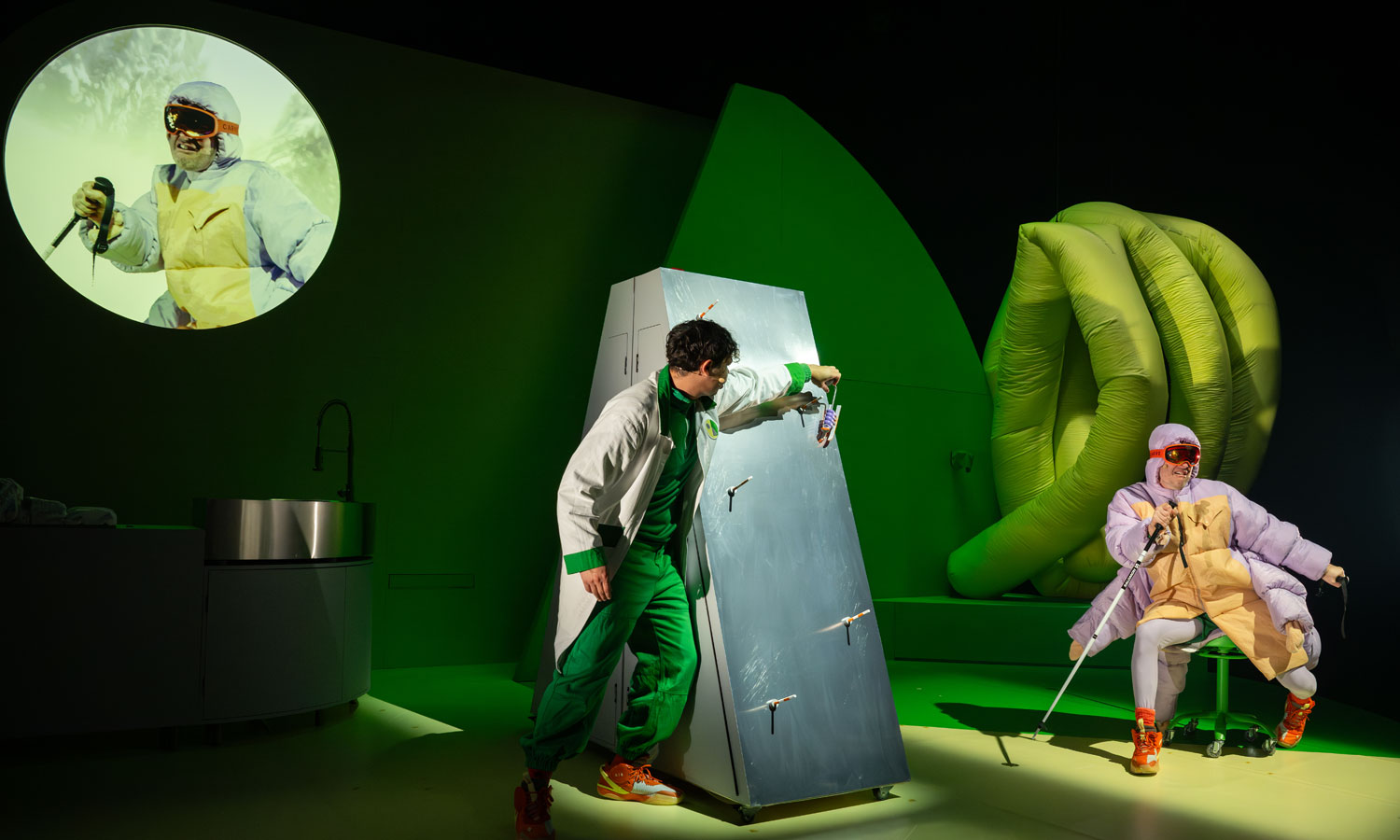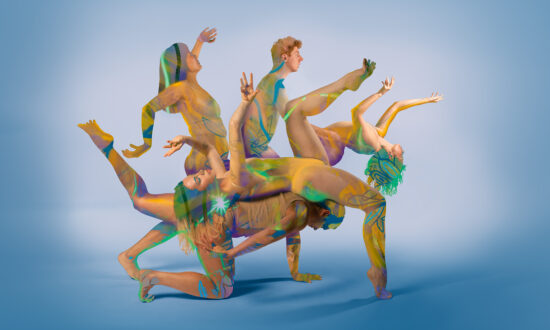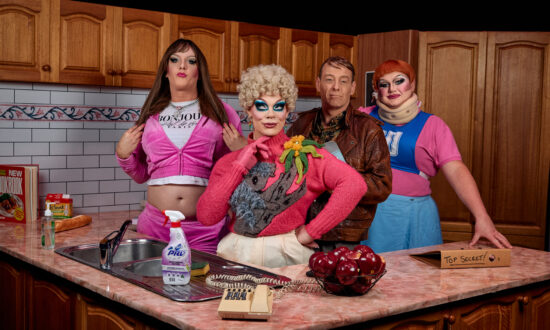First up, we meet two scientists. As the narrator tells us, it is their job to ask questions. Gareth Davies, who is also a co-creator of this production, and Dylan Miller do a spectacular job of engaging audiences from the moment they appear on stage. Their physicality and sleek comedic timing, paired with clever sound design, means the audience is immediately hooked and stays that way for the remainder of the production.
The majority of Moss Piglet unfolds in the setting of a petri dish, which, for microscopic creatures like the tardigrades – also known as moss piglets – seems as big as an entire planet.
In this new work – a world premiere directed by Windmill Theatre’s new artistic director Clare Watson and co-created by Watson and Elena Carapetis – the character of Moss Piglet appears in many different forms and many different sizes, which plays with the idea of perspective, and our ability to decentre the human gaze. Davies and Miller, under the direction of Nathan O’Keefe and Jonathon Oxlade as puppetry directors, do a brilliant job of bringing Moss Piglet to life through puppetry.
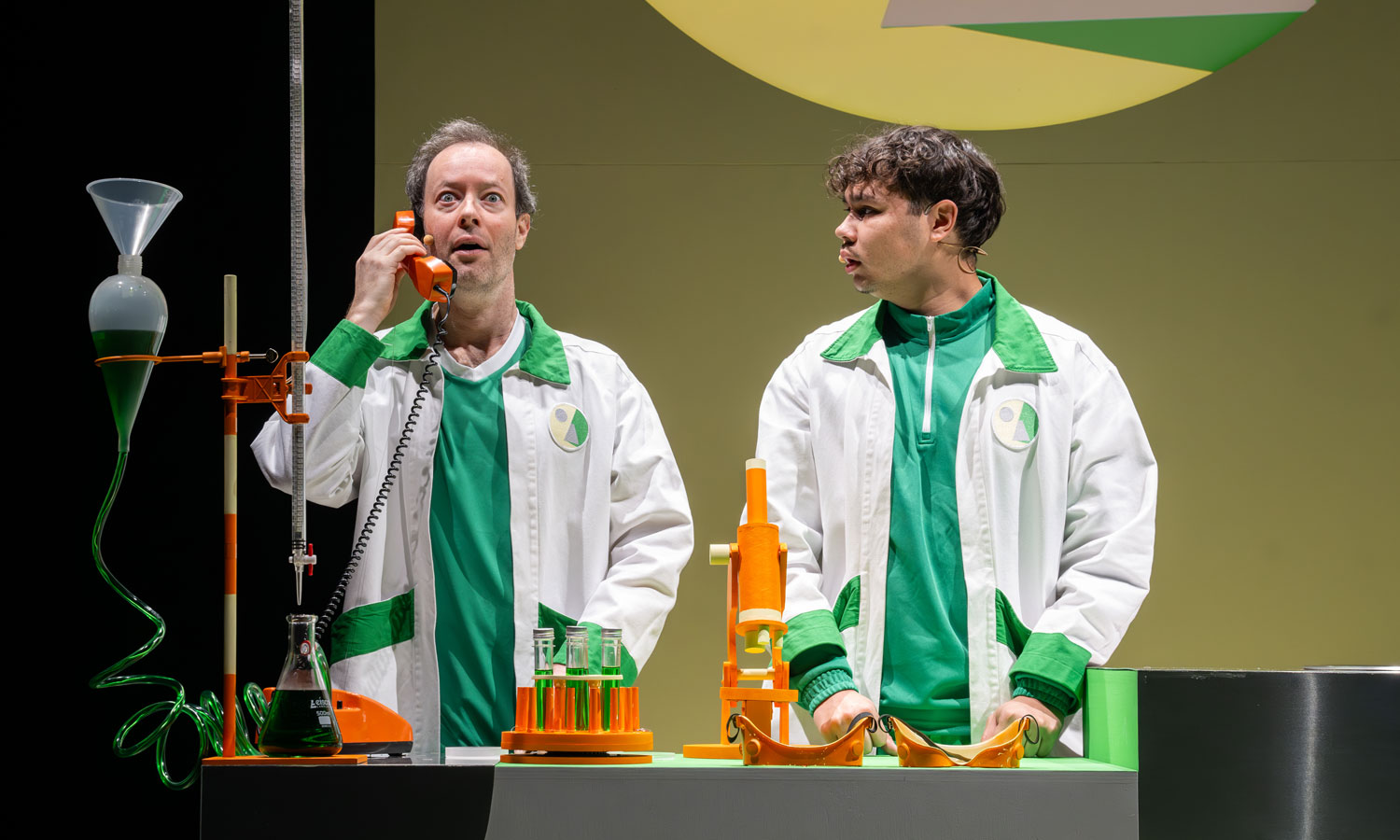
Moss Piglet performers Gareth Davies and Dylan Miller. Photo: Morgan Sette
The set, designed by Meg Wilson, at first appears simple yet playful, with a purple and green colour palette; however, the way the space transforms not only for functionality, but for engagement, is incredibly creative.
Stage right features the lab, where the characters of the scientists spend most of their time. Above sits a circular window onto which projections are played throughout the production: everything from a petri dish to the Moon can be seen in this window.
There is also a camera on the opposite side of the stage, which faces the performers. This half of the set is green and serves as a greenscreen behind the actors as they masterfully use innovative movement and perspective to help tell sections of the narrative. In real time, everything caught on camera is projected up to the circular window, but with all the graphics added in in place of the green screen.
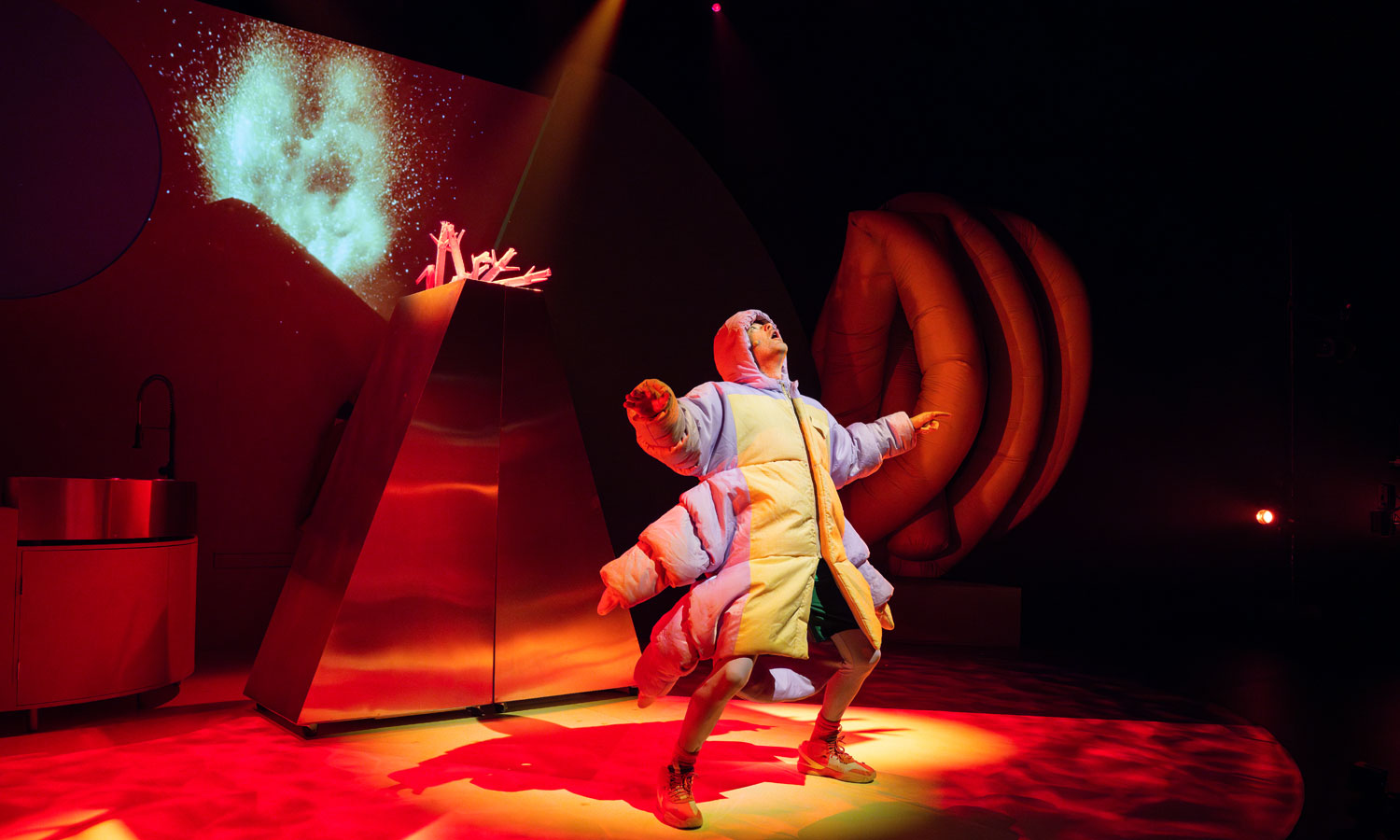
Windmill Theatre’s Moss Piglet takes audiences on an enchanting journey. Photo: Morgan Sette
Being able to see the final product in the window, as well as how it is created, is fascinating. It reiterates that so much of the world as we see it with the naked eye only exists because of what we can’t see, such as creatures like moss piglets.

Get InReview in your inbox – free each Saturday. Local arts and culture – covered.
Thanks for signing up to the InReview newsletter.
The soundtrack is playful and dynamic – as engaging for young audiences as it is for their parents. Composer and sound designer Luke Smiles creates dramatic moments of awe and gentle moments of reflection through his compositions. Smiles also includes familiar tunes like “Feeling Hot Hot” by The Merrymen, as Moss Piglet dodges lava, or David Bowie’s “Space Oddity” when the microscopic creature decides to go on a space adventure.
As a giant blow-up version of Moss Piglet inflates to close out the production, it becomes clear that the power in this work, for audiences young and old, is in the perspective it gives us. Moss Piglet asks us to “zoom out”, which is a humbling experience for humans. It centres a microscopic creature that is far more resilient than us – it has survived extinction events and will outlive us all.
Moss Piglet (recommended for ages five to 10) is at the Festival Centre’s Space Theatre until October 20 and will tour to regional South Australia in 2025.
Support local arts journalism
Your support will help us continue the important work of InReview in publishing free professional journalism that celebrates, interrogates and amplifies arts and culture in South Australia.
Donate Here
